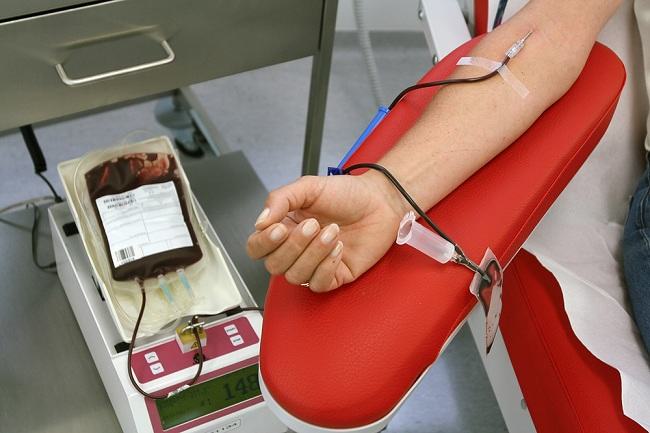Bariatric surgery is surgery performed to help menput it down weight. This procedure is usually performed on patientsoirony which difficult to overcome with just diet and exercise.
Obesity or being overweight is a serious health problem that can increase the risk of developing dangerous diseases, such as heart disease and stroke.

In obese people who are at risk of health problems and are unable to lose weight after trying regular exercise, dieting, or taking drugs, the doctor may suggest bariatric surgery.
This operation aims to limit the amount of food that can be accommodated by the stomach or reduce the absorption of nutrients in the small intestine.
Types of Bariatric Surgery
There are several types of bariatric surgery that are commonly performed, namely:
1. Gastric bypass
In this procedure, the surgeon will separate the stomach into two parts, namely the smaller upper part and the larger lower part. The small intestine will also be cut into shorter pieces and connected directly to the small stomach.
The goal is to reduce the food storage space in the stomach and reduce the absorption of nutrients from food in the small intestine.
2. Sleeve gastrectomy
This method is done by removing about 75-80% of the stomach. The remaining hull is slender and elongated like a banana. That way, the capacity of the stomach is significantly reduced and the patient will be full faster after undergoing gastric cutting surgery.
3. Adjustable gastric band
In this type of bariatric surgery, the stomach will be tied with a special device that is shaped like a ring. The doctor can attach the device, then tighten or loosen it as needed. This bond will limit the amount of food that can be eaten and make you feel full quickly.
4. Biliopancreatic diversion with duodenal switch
In this procedure, the stomach is cut and connected directly to the end of the small intestine. After undergoing this procedure, food will still mix with stomach acid, bile, and digestive enzymes in the large intestine, but the nutrients absorbed by the body will be much reduced.
Of all types of bariatric surgery, this method is the most at risk of causing malnutrition.
Each type of bariatric surgery has its own advantages and risks. To determine the most suitable and effective type of bariatric surgery, the doctor will first perform a complete medical examination on the patient, then determine the choice of bariatric surgery according to the patient's condition.
Candidates to Consider for Bariatric Surgery
Bariatric surgery may be considered by adults who have any of the following conditions:
- Severe obesity, which is a body mass index of more than 40.
- Obese with a body mass index ranging from 35 to 39.9, but have serious health problems related to obesity, such as diabetes, heart disease, high blood pressure, and obesity. sleep apnea.
Bariatric surgery is rarely performed in adolescents. However, obese adolescents who have passed puberty and have reached the maximum height according to their growth can be considered as candidates for bariatric surgery, at the discretion of the doctor.
Usually the type of bariatric surgery recommended for this teenager is the type adjustable gastric band.
Benefits of Bariatric Surgery
Bariatric surgery can provide a variety of benefits, both physical and psychological. Among others are:
- Capable of producing long-lasting weight loss. Research shows that more than 90% of obese people who undergo bariatric surgery lose weight, and the results persist for at least 1 year.
- Able to increase life expectancy. Research shows that obese people who have undergone bariatric surgery have a higher life expectancy than obese people who have not undergone surgery.
- Able to prevent or assist in the treatment of other health disorders related to obesity. Examples are type 2 diabetes, high blood pressure, sleep apnea, knee pain due to arthritis (arthritis), stomach acid disease, high cholesterol, and fatty liver.
- Able to improve the quality of life in general and improve psychological conditions. Self-confidence, social interaction, depressive symptoms, and anxiety disorders were reported to improve after obese patients underwent bariatric surgery.
Bariatric Surgery Risks
Although effective in losing weight, bariatric surgery has many risks, including:
- Bleeding.
- Infection.
- The formation of an embolism, which is a blood clot that can be carried to certain organs, such as the brain, lungs, or heart. If not treated immediately, this condition can be life threatening.
- Leaks in the sutured stomach or intestines.
- Difficulty breathing.
In the long term, people who have bariatric surgery are also more at risk for:
- Health problems caused by impaired absorption of nutrients, such as lack of absorption of iron, calcium, and vitamins, including vitamin B12 and vitamin E.
- Food moves too quickly through the small intestine, causing nausea, diarrhea, sweating, dizziness, and weakness after eating. This is especially the case when eating sugary foods.
- The formation of gallstones due to drastic weight loss in a short time.
- hernia.
- Narrowing in the area of \u200b\u200bthe stomach and intestines that are sutured, resulting in nausea, vomiting, and difficulty eating.
- Sores or holes in the digestive tract.
In addition to having many risks, bariatric surgery can also fail to lose weight, although the chances are small. That is why, it is necessary to carry out a thorough medical examination and careful consideration before undergoing this procedure.
In order to get optimal results with minimal side effects, make sure you follow all the doctor's instructions after bariatric surgery, including the diet that must be followed, lifestyle changes, taking medication and vitamins, as well as regular check-ups.
If you experience certain health complaints or problems after undergoing bariatric surgery, don't hesitate to immediately return to the surgeon.
Written by:
dr. Irene Cindy Sunur









